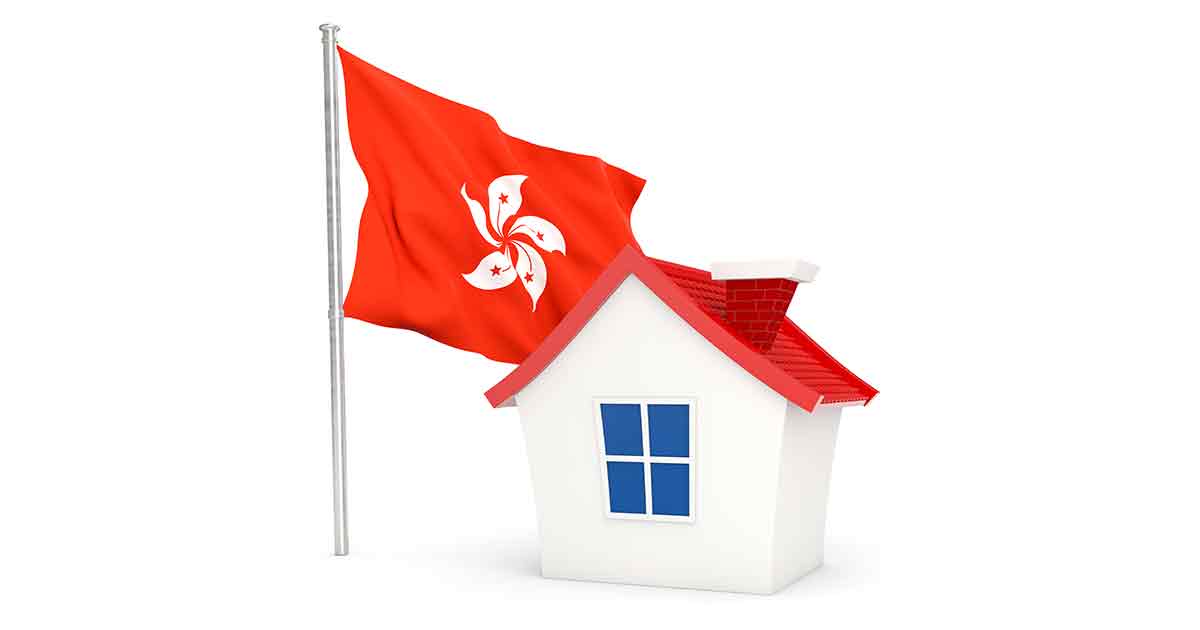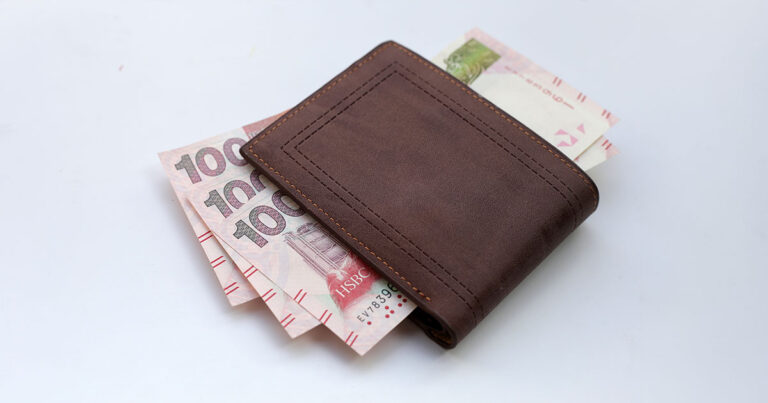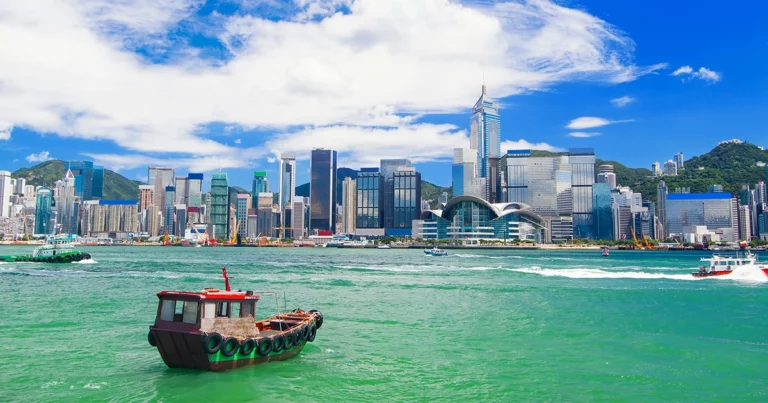How to buy property in Hong Kong as a foreigner

This article covers:
Key Takeaways
- Unlike many countries, Hong Kong has an open property market with no restrictions on foreign ownership of residential and commercial properties.
- Hong Kong is one of the most expensive real estate markets in the world, with prices averaging US$25,000 per square meter. A modest two-bedroom condo can exceed US$2 million.
- Foreign buyers must pay Ad Valorem Stamp Duty (AVD), ranging from HK$100 to 4.25% of the transaction value.
- Popular areas for foreign buyers include Mid-Levels, The Peak, Repulse Bay & Southside, and North Point.
- The process includes choosing a property, submitting an intent to register, signing agreements, securing financing, completing transactions and registering ownership.
- Foreign buyers can get mortgages with Loan-to-Value (LTV) ratios up to 70%.
- Buyers need a valid passport, proof of funds, a Hong Kong bank account and legal representation to handle contracts and title transfers.
Did you know that Hong Kong is considered one of the world’s most expensive real estate markets? With average prices reaching US$25,000 per square meter – a modest two-bedroom condominium in Hong Kong typically exceeds US$2 million.
However, despite the competitive market, Hong Kong is also one of the few places in Asia where foreigners can buy property with relatively few restrictions. Property owners get to enjoy high standards of living, low taxes, low crime rates and efficient public transportation, to name a few.
So, if you’re planning to buy a property in Hong Kong, you should understand the local property market, legal requirements and financing options.
In this guide, we’ll walk you through everything you need to know about buying property in Hong Kong as a foreigner—from eligibility and taxes to key considerations before making a purchase or large international money transfers.
Can foreigners buy property in Hong Kong?
Yes, foreigners can buy property in Hong Kong with virtually no restrictions. Unlike many other countries that impose limitations on non-residents purchasing real estate, Hong Kong has an open and transparent property market that allows foreigners to own residential and commercial properties outright.
What are the property taxes in Hong Kong?
In Hong Kong, taxes apply when renting out or transferring property, much like in other places. Moreover, all real estate transactions operate on a leasehold basis. This means you are not required to pay annual property taxes if the property isn’t generating income.
If you do rent out your property, a 15% tax is levied on the rental income. However, a fixed deduction of 20% for repairs and maintenance effectively lowers the tax rate to around 12%. This figure may vary, so exact amounts cannot be determined in advance.
You will also be required to pay stamp duty when transferring property, with rates ranging from as low as 1.5% to as high as 32% of the property’s total value.
But here’s some good news. The Hong Kong government has removed the Special Stamp Duty (SSD), Buyer’s Stamp Duty (BSD) and New Residential Stamp Duty (NRSD), effective February 28, 2024 onwards.
However, sellers and buyers are still required to pay ad valorem stamp duty (AVD) based on Scale 2 rates, which range from HK$100 to 4.25% of the transaction value. The AVD rates now apply equally to both residential and non-residential property transactions.
Effective February 26, 2025, the Scale 2 rates will be as follows:
| Amount or value of the consideration(whichever is the higher) | Rates at Scale 2 | |
| Exceeds | Does not exceed | |
| $4,000,000 | $100 | |
| $4,000,000 | $4,323,780 | $100 + 20% of excess over $4,000,000 |
| $4,323,780 | $4,500,000 | 1.5% |
| $4,500,000 | $4,935,480 | $67,500 + 10% of the excess over $4,500,000 |
| $4,935,480 | $6,000,000 | 2.25% |
| $6,000,000 | $6,642,860 | $135,000 + 10% of the excess over $6,000,000 |
| $6,642,860 | $9,000,000 | 3% |
| $9,000,000 | $10,080,000 | $270,000 + 10% of the excess over $9,000,000 |
| $10,080,000 | $20,000,000 | 3.75% |
| $20,000,000 | $21,739,120 | $750,000 + 10% of the excess over $20,000,000 |
| $21,739,120 | 4.25% | |
Source: GovHK
Popular areas for foreign buyers
If you’re buying a house in Hong Kong, your choice of location will depend on your lifestyle, budget and preferences. Some areas are particularly popular among expatriates and foreign buyers due to their accessibility, amenities and international communities. Here are some of the top areas to consider:
Mid-Levels
Located between Victoria Peak and Central, Mid-Levels has a mix of high-end apartments and serviced residences. It’s popular among professionals and executives who want to be close to the business district while enjoying a quieter, more residential atmosphere.
Property prices in this area generally fall between HK$35,000 and HK$60,000 per square foot, with rental yields averaging between 2.5% and 3%.
- Proximity to Central, making it ideal for professionals
- High-end apartments with stunning harbour or mountain views
- Home to the famous Mid-Levels Escalator, the world’s longest outdoor covered escalator system
- Prestigious international schools and healthcare facilities
- A mix of modern skyscrapers and colonial-style buildings
The Peak
The Peak is Hong Kong’s most exclusive residential area, offering some of the most expensive properties in the world. Known for its breathtaking views of Victoria Harbour and lush surroundings, The Peak is a favourite among ultra-high-net-worth individuals.
Property values in this location commonly fall between HK$80,000 and HK$130,000 per square foot, with the possibility of higher prices for unique listings.
For example, expect to pay over HK$300 million for a standard 3,000-square-foot property in this area.
- Spectacular panoramic views of the city and harbour
- Secluded and peaceful environment away from the hustle and bustle
- Large luxury mansions and high-end apartments
- Proximity to elite private clubs, high-end restaurants and luxury shopping
- Strong potential for property value appreciation
Repulse Bay and Southside
Not everyone loves skyscrapers and the hustle and bustle of the city. For those who prefer a more relaxed and scenic lifestyle, Repulse Bay and the Southside offer beautiful beachfront properties.
Located on the southern coast of Hong Kong Island, these areas are popular among expatriate families due to their resort-style living, international schools and recreational activities.
In Repulse Bay, properties generally cost from HK$45,000 to HK$70,000 per square foot, and rental returns are typically in the 2.3 to 2.8% range.
- Stunning beaches and a peaceful environment
- Luxury apartments and large detached houses
- High concentration of international schools
- Easy access to outdoor activities such as hiking, sailing and beach clubs
- Upscale shopping and dining options at The Pulse
North Point
North Point, located just east of Wan Chai, is more of a local neighbourhood with a traditional charm. The MTR runs through the area, making it a convenient choice for expats who want easy access to offices, international restaurants and shopping malls in the city centre.
It also has a more authentic atmosphere. Here you’ll find excellent Cantonese cuisine and bustling wet markets.
This is why North Point has become increasingly attractive to foreign buyers seeking a balance between affordability, accessibility and urban living.
- More affordable compared to Mid-Levels and Central
- Proximity to key business districts like Quarry Bay and Causeway Bay
- Stunning waterfront properties with panoramic harbour views
- Well-connected via the MTR, tram and bus networks
- A mix of traditional markets and modern shopping malls
Buying property in Hong Kong as a foreigner: A step-by-step guide
Once you’ve decided on a location and understood how the Hong Kong property market works, you should learn the step-by-step process of purchasing a property. Take a closer look at them below:
Step 1: Gather your requirements
Before purchasing property in Hong Kong, foreign buyers must meet the following requirements:
- Valid Passport or Identification: A passport is required for identity verification and legal documentation.
- Proof of Funds: Buyers must provide proof of sufficient funds, including bank statements or financial documents.
- Hong Kong Bank Account: A local bank account is recommended for handling payments, mortgages, and transaction fees.
- Legal Representation: Hiring a solicitor or conveyancing lawyer is mandatory for handling contracts and title transfers.
Step 2: Search for the right property
There are several ways to explore Hong Kong’s property market:
- Visit the Sales of First-hand Residential Properties Electronic Platform for information on new developments. You can browse sales brochures, price lists and sales arrangements.
- Consult local property agencies for advice and stay updated on the latest listings, price trends and transaction history through real estate platforms and property market news websites.
Step 3: Submit your registration of intent
After selecting your desired property, you can submit a registration of intent to the developer through a property agent (if applicable). This requires a cashier’s order or cheque for the amount specified by the developer, payable to the designated law firm.
Developers typically conduct a ballot to determine the order of unit selection. Once you have chosen your preferred unit, you must sign a Provisional Agreement for Sales and Purchase (PASP) and make a 5% provisional deposit of the property price.
Within five working days of signing the PASP, you must complete the Formal Agreement for Sales and Purchase (FASP) and pay an additional 5% deposit.
Step 4: Choose a payment plan
For new, under-construction properties, developers offer pre-sales with two payment plans:
- Cash Payment Plan: Pay the full price within a set period before construction is completed. This option comes with more discounts and benefits since developers prefer early payments. Ideal if you have enough funds.
- Stage Payment Plan: Pay a down payment when selecting your unit, then settle the remaining balance within 14 days of the developer’s notice to transfer ownership. This gives you more time to arrange financing, especially for large money transfers or large currency transfers.
Step 5: Apply for a mortgage (If needed)
If you choose to finance the property through a mortgage, research lenders or local banks that offer financing to foreign buyers. For instance, Hang Seng Bank requires the following documents for foreign buyers:
| Salaried Individuals | Self-Employed Individuals |
| Original and a photocopy of your ID or passport | Original and a photocopy of your ID or passport |
| Proof of residential address (e.g., water, electricity, or gas bill) | Proof of residential address (e.g., water, electricity, or gas bill) |
| Income verification (e.g., last six months’ tax slips, bank statements, and/or an employment letter or contract specifying salary) | Income verification (e.g., latest 12 months’ major bank statements and/or last year’s tax slip) |
| Property transaction documents (e.g., Sales & Purchase Agreement, proof of down payment, Title Deed) | Business-related documents (e.g., practising card or proof of company ownership) |
| Any additional documents requested by the bank | Latest audited financial statements |
| Property transaction documents (e.g., Presale Contract, Sales & Purchase Agreement, proof of down payment, Title Deed) |
You must be in Hong Kong to apply for a mortgage or sign mortgage documents.
Both local and overseas buyers can get a mortgage with an LTV ratio of up to 70%. If you have a Hong Kong identity card and are buying a home for yourself, you may qualify for mortgage insurance with an LTV ratio of up to 90%.
Step 6: Complete the property transaction
Once the Formal Agreement for Sales and Purchase (FASP) is signed and stamp duties are paid, your lawyer will handle the title deed transfer. The final steps include:
- Verifying property ownership and legal documentation.
- Settling the remaining balance of the property price (if applicable).
- Completing mortgage arrangements (if financing is used).
- Transferring property ownership and obtaining the Title Deed.
Step 7: Take possession of the property
After completing the transaction, the developer or seller will hand over the keys to your new property. Depending on whether it is a completed or under-construction unit, the timeline for possession varies:
- Completed properties: Immediate handover upon full payment and title transfer.
- Under-construction properties: Handover occurs once the developer issues an official notice of completion.
Step 8: Register your property
To secure legal ownership, you must register the property with the Land Registry in Hong Kong. Your solicitor will handle this process by submitting the necessary documents and ensuring the transaction is properly recorded.
Final thoughts
Despite the undeniably high cost of entry, Hong Kong offers the best of both worlds: a great urban lifestyle and long-term investment potential. You have access to an open market, world-class infrastructure, low crime rates—the whole nine yards.
So, at the end of the day, investing in Hong Kong real estate is more than just buying property—it’s securing a stake in one of the world’s most prestigious and resilient markets.
And when it comes to managing your funds for such an investment, Instarem can make international money transfers easier and more cost-effective, specifically when you need to transfer large amounts of money.
- Get Everything in One App: We make it simple, fast and affordable. With just a few taps, your money can be on its way without high fees. Enjoy better exchange rates, full transparency and easy tracking of your funds.
- International Payments: Send and receive payments for your Hong Kong real estate investments with ease, whether you’re buying, selling or managing properties. With competitive exchange rates and low fees, you can securely and efficiently transfer funds between your international accounts, ensuring a smooth and seamless investment experience.
- No Hidden Fees: There are no setup or subscription fees, nor are there any hidden charges to surprise you.
Grow your Hong Kong real estate investment with Instarem. Sign up now and manage your property finances more easily—no matter where you are in the world.
FAQs
Is buying property in HK a good investment?
It can be, but it depends on market conditions, your finances and long-term goals. While prices are high due to demand and limited land, factors like economic shifts, government policies and interest rates affect returns.
How much money do you need to buy a house in Hong Kong?
Prices vary by location, but a small apartment can start at HK$4 million, while central areas can exceed HK$10 million. Additional costs include stamp duties, legal fees and agent commissions.
What is the minimum down payment for a house in Hong Kong?
The minimum down payment depends on the property price and whether you’re a first-time buyer or an investor. Typically:
- For properties under HK$10 million, banks can finance up to 90% of the price, meaning a 10% down payment is required.
- For properties between HK$10 million and HK$12 million, the loan cap is around 80%, requiring at least a 20% down payment.
- For properties above HK$12 million, the down payment can be 40% or more, depending on financing eligibility.
























